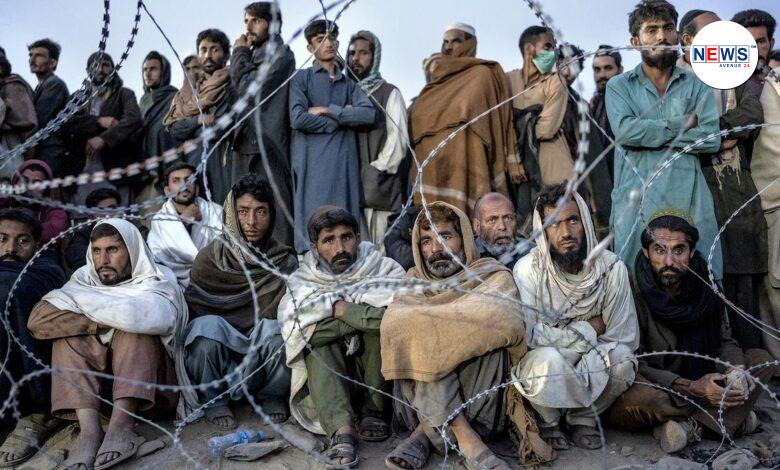
Pakistan Orders Afghan Refugees To Leave Or Face Expulsion, Taliban Condemns Move
Pakistan has launched a fresh wave of deportations targeting Afghan refugees, intensifying tensions with the Taliban government. The crackdown, which affects around 3 million individuals, includes even those holding legal documentation such as Afghan Citizen Cards (ACC) and Proof of Registration (PoR) cards.
Top Indian intelligence sources have confirmed to CNN-News18 that Pakistan is proceeding with the expulsion of all Afghans, irrespective of their legal status. Over 800,000 ACC holders were ordered to leave Islamabad and Rawalpindi by 31 March 2025 or face forced removal. Deportations were initially scheduled to begin on 1 April but have been delayed to 10 April due to the Eid al-Fitr holidays.
Meanwhile, the 1.3 million Afghans with PoR cards have been told they can stay only until 30 June 2025, after which they too risk expulsion.
The Taliban has reacted strongly to this move. In a rare public rebuke, its Ministry of Refugees has urged Pakistan to ensure deportations are “dignified and voluntary”, warning that forced removals fuel hatred and could destabilise the region. Taliban officials also slammed the lack of coordination with Afghan authorities and the United Nations High Commissioner for Refugees (UNHCR), calling Pakistan’s policy “arbitrary” and harmful to bilateral ties.
The situation on the ground is dire. Since late 2023, more than 845,000 Afghans have fled Pakistan, many reporting police raids, bribes, document destruction, and separation of families. Vulnerable groups, including women, journalists, and former allies of the Ghani government, face heightened risks of reprisal by the Taliban upon return.
Returnees, many of whom are arriving in regions already ravaged by floods, droughts, and earthquakes, are sleeping in open fields or makeshift tents with little access to clean water, food, or healthcare. Internally displaced persons (IDP) camps are overwhelmed, and Afghanistan’s healthcare system is collapsing.
Afghanistan’s economic situation remains bleak. Since the Taliban takeover in 2021, the economy has shrunk by 30 per cent, unemployment has skyrocketed, and over 23.7 million people—nearly 60 per cent of the population—require humanitarian aid. The return of refugees is expected to exacerbate this crisis. Over half of the population is experiencing acute food shortages, and 2.9 million children under five are malnourished. Nearly 30 per cent of Afghan children face emergency hunger levels, with many returnee children unable to attend school due to Taliban restrictions or lack of documents.
The plight is especially severe for women and girls, who are banned from education beyond Grade 6 and face near-total exclusion from the workforce. Women protestors who had sought shelter in Pakistan now fear Taliban retaliation if deported.
Rights groups and the UN have criticised Pakistan’s actions as violations of international law, particularly the principle of non-refoulement, which prohibits sending refugees back to places where they face danger. The Taliban has warned that the expulsion of returnees—many of them former government workers or Western allies—risks further instability, as these individuals could be arrested, tortured, or even executed.
Security analysts warn that the deportation wave could boost recruitment for extremist groups like ISIS-K and Tehrik-i-Taliban Pakistan (TTP), which Pakistan claims it is trying to suppress through these deportations.
The fallout of this refugee crisis is not just humanitarian—it is poised to worsen already fragile regional relations and security dynamics.




